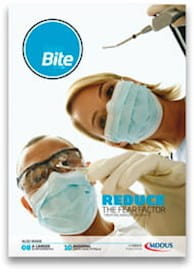STORIES about the abuse of children and vulnerable adults are distressing for anyone to read, particularly when it appears noone spotted or stopped the abuse before serious harm was caused. For health professionals there is the added concern of whether they should be the ones ringing alarm bells. Is there a patient they’ve seen who is suffering? Should they report their suspicions or are they over-reacting? What will happen if they do nothing or indeed if they do act and their fears prove unfounded?
The General Dental Council (GDC) expects all registrants to be aware of the procedures involved in raising concerns about the possible abuse or neglect of children and vulnerable adults. In our Standards for dental professionals we say: “Find out about local procedures for child protection. Make sure you follow these procedures if you suspect that a child might be at risk because of abuse or neglect.”
This guidance applies equally to vulnerable adults. The GDC considers that the term ‘vulnerable adults’ means “a person above the age of 18 years who is or may be in need of community care services (including healthcare) by reason of mental or other disability, age or illness; and who is unable to take care of him or herself, or unable to protect him or herself against significant harm or exploitation” (Taken from See Who decides – 1997 Consultation paper issued by the Lord Chancellor’s Department).
Some of you may be more likely than others to come across these issues during your career. Perhaps you will choose to become a specialist in paediatric dentistry or special care dentistry. The latter of which is concerned with the improvement of oral health in individuals and groups in society who have a physical, sensory, intellectual, mental, medical, emotional or social impairment or disability or, more often, a combination of these factors.
How to identify and raise concerns
As a dental professional, you have a responsibility to raise any concerns you may have about the possible abuse or neglect of children or vulnerable adults. You may observe and identify injuries to the head, eyes, ears, neck, face, mouth and teeth, as well as other welfare concerns. Bruising, burns, bite marks and eye injuries are the types of signs that could suggest a concern should be raised.
It’s not easy to know whether you are right or wrong to be concerned. The web-based resource Child Protection and the Dental Team (www.cpdt.org.uk) was specifically developed as an educational online resource to help you make decisions and guide you through the process should you decide to take action. It suggests you look out for these sorts of issues:
• Has there been a delay in seeking dental advice for which there is no satisfactory explanation?
• When you examined the child, were there any injuries which cannot be explained?
Allow the child to talk and volunteer information – don’t ask leading questions. It is your responsibility to know who to contact for further advice and how to refer to an appropriate authority. If you are unsure of the local procedures in your area, you have a duty to find out what they are, whether you work for the NHS or in private practice. You should also contact your defence organisation or professional association for advice. Remember that if you make a professional judgement and decide not to share your concern with the appropriate authority, you must be able to justify how you came to this decision.
PVG Scheme and helpful resources
One of the most significant changes in this area in Scotland is the Protecting Vulnerable Groups Scheme (PVG Scheme). This is due to be introduced in February 2011 and is replacing the current disclosure arrangements for people who work with vulnerable groups.
The legislation behind this (the Protection of Vulnerable Groups (Scotland) Act 2007) is Scotland’s response to the Bichard Inquiry report which looked into whether the murders of Soham schoolgirls Holly Wells and Jessica Chapman could have been prevented. If you haven’t already, you should find out how this is going to affect you and your colleagues. Find out more by logging on to www.gov.scot.
There are many other organisations and resources you can refer to for help. The 24- hour Child Protection Line will give you access to local child protection services in Scotland on 0800 022 3222 or you can go to http://withscotland.org/public where you will also find information about links in your area. You could also turn to charities for advice. In 2008/09, the NSPCC Helpline (0808 800 5000) spoke to nearly 30,000 adults worried about a child. Over 11,000 of those calls resulted in a referral to the police or children’s services to take some form of protective action.
Jenny Watts is Standards Manager at the General Dental Council
This page was correct at the time of publication. Any guidance is intended as general guidance for members only. If you are a member and need specific advice relating to your own circumstances, please contact one of our advisers.
Read more from this issue of Insight Primary

Save this article
Save this article to a list of favourite articles which members can access in their account.
Save to library